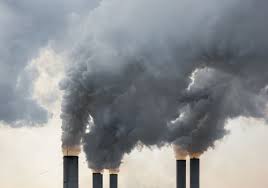Long-term gas projects in Africa should not be invested in, John Kerry has said. On Thursday, September 15, the U.S. climate envoy was in Senegal for a session with environment ministers from all over the continent.
They intend to take advantage of recent oil and gas finds in some of the nations they represent, but are also battling a global movement for better energy alternatives.
“Gas might be utilized as a transitional fuel; we’re not saying avoid gas; rather, we’re saying that if gas replaces coal or oil in the next years, that’s a positive thing. But after 2030, it will be crucial to be able to also absorb gas emissions.”
Africa contends that in order to develop its energy resources, including oil and gas, the industry must be powered and energy poverty must be reduced.
In November, they intend to promote this message during a U.N. climate summit in Egypt.
According to the International Energy Agency, more than 600 million people, or 43% of Africa’s population, lack access to electricity, with the majority of them living in sub-Saharan Africa.
Despite contributing only a small portion of the world’s carbon emissions, the continent has been hardest hit by climate change, which has recently increased cyclones, flooding, and droughts.
“I believe that right now, it’s more important to support people’s growth while avoiding the mistakes that we’ve already done in the past. Be as eco-friendly as you can and assist us in moving forward without making the issue worse than it already is.”
After 2030, the deadline many wealthy countries have set for switching to primarily renewable energy, Kerry warned that the feasibility of long-term gas projects could become a challenge.
“Are they expected to reach their full cost and be paid for in ten years? No, most likely not. They will take 20, 30, or 40 years to complete, and while some individuals I know want projects that take that long, it is not now required for us to do so in order to fulfill the energy needs of the present.”
Kerry urged industrialized countries to increase their assistance to underdeveloped countries in order to help them adapt and overcome the first barriers to the development of renewable energy sources.
According to him, the United States has pledged $12 billion for “adaptation and resilience” and is developing a new structure to attract large investors who have trillions of dollars to contribute.




















